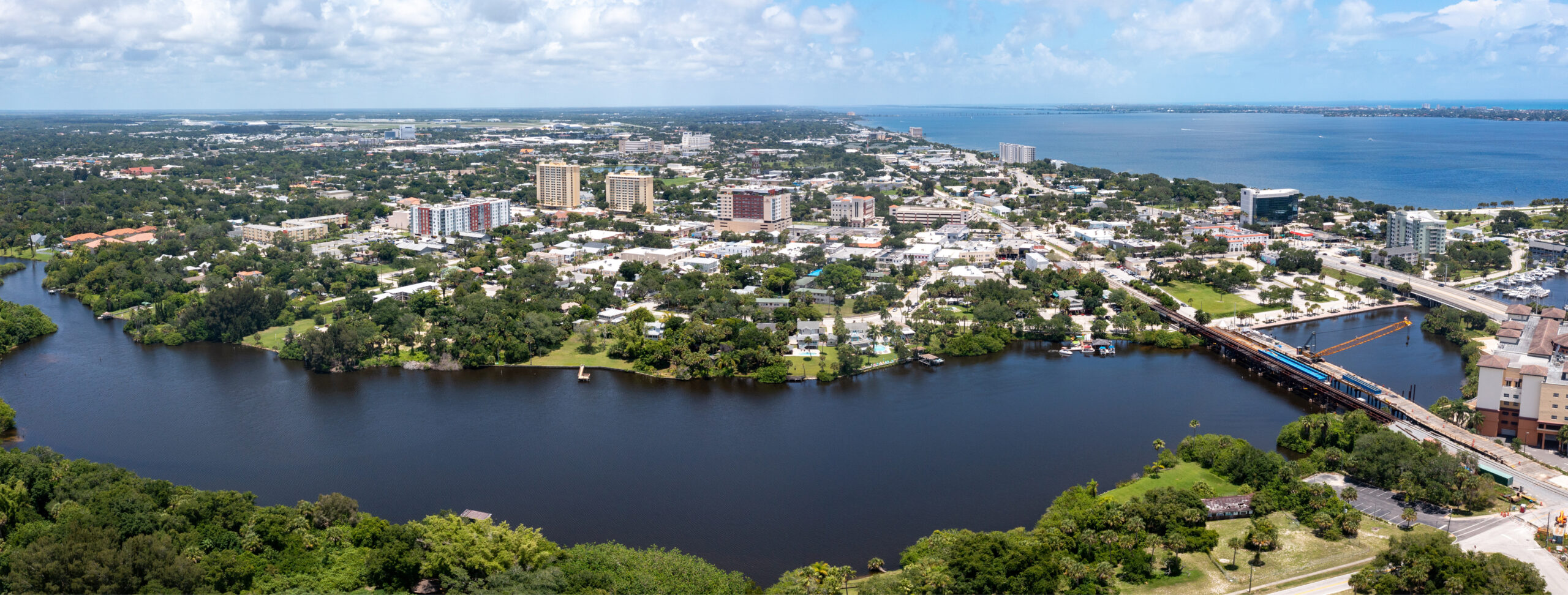Drug distribution / manufacturing charges in Florida carry severe consequences impacting the lives of those accused in significant ways. These charges can result in long-term penalties ranging from extensive fines to lengthy prison sentences.
Melbourne Attorney for Drug Distribution and Manufacturing Charges
While most states have taken a more lax stance on drug possession and usage in small quantities, they have instead shifted their attention towards key players in the industry—namely those making and distributing drugs to smaller dealers or customers. In this shift, many people who would normally fly under the radar have been caught, and others have seen much harsher sentences than are necessarily warranted.
If you have been charged with drug distribution and/or manufacturing charges, know that you need to contact an experienced criminal defense attorney immediately.
Our office is located in Melbourne, Florida, and we proudly serve the surrounding communities of Palm Bay, Titusville, Rockledge, Merritt Island, Cocoa, and Satellite Beach in Brevard County; Vero Beach and Sebastian in Indian River County; Deltona and Daytona Beach in Volusia County; and Kissimmee and Poinciana in Osceola County.
Contact Germain Legal by calling (321) 775-3559 or submit an online form today to start building your defense.
- What is Drug Distribution and Manufacturing?
- What the Prosecutor Must Prove
- What Are the Penalties for Drug Distribution and Manufacturing?
- Possession of Drug Manufacturing Equipment or Chemicals
- What Are Possible Non-Jail Alternatives?
- What Are Potential Defenses?
- How Can a Drug Distribution Lawyer Defend Me?
- Frequently Asked Questions
- Additional Resources
- Lawyer for Drug Distribution and Manufacturing Charges in Brevard County Florida
What is Drug Distribution and Manufacturing?
According to Florida Statutes Section 893.13, drug distribution refers to the transfer of a controlled substance from one person to another. This can include selling, delivering, or giving away a controlled substance. Drug manufacturing involves producing, preparing, or processing a controlled substance through extraction, chemical synthesis, or any other means, which can also include packaging and labeling.
What the Prosecutor Must Prove
- Transfer of a Controlled Substance: According to Florida Statutes Section 893.13, a prosecutor must show that the person transferred or attempted to transfer a controlled substance to another person, whether directly or indirectly.
- Controlled Substance Involved: The prosecutor must establish that the substance involved is listed as a controlled substance under Florida law.
- Unlawful Distribution or Manufacturing: The prosecutor must demonstrate that the distribution or manufacturing occurred without legal authorization, such as a prescription or license.
- Intent: The prosecutor must prove that the person had the intent to distribute or manufacture the controlled substance rather than merely possessing it for personal use.
- Knowledge: The prosecutor must show that the person knew or should have known that they were distributing or manufacturing a controlled substance.
What Are the Penalties for Drug Distribution and Manufacturing?
| Offense | Penalty |
|---|---|
| Schedule I and II Controlled Substances | Second-degree felony: Up to 15 years in prison and/or a fine up to $10,000. If more than 10 grams, first-degree felony: Up to 30 years in prison and/or a fine up to $10,000. |
| Schedule III, IV, and V Controlled Substances | Third-degree felony: Up to 5 years in prison and/or a fine up to $5,000. |
| Within 1000 feet of schools, parks, or similar locations (Schedule I and II substances) | First-degree felony: Up to 30 years in prison and/or a fine up to $10,000. Mandatory minimum of 3 years in prison. |
| Within 1000 feet of schools, parks, or similar locations (Schedule III, IV, and V substances) | Second-degree felony: Up to 15 years in prison and/or a fine up to $10,000. |
| Manufacturing methamphetamine or phencyclidine with a child present | First-degree felony: Up to 30 years in prison and/or a fine up to $10,000. Mandatory minimum of 5 years in prison. |
| Resulting in an overdose or serious bodily injury (Heroin, Fentanyl, etc.) | Second-degree felony: Up to 15 years in prison and/or a fine up to $10,000. If previously convicted, first-degree felony: Up to 30 years in prison and/or a fine up to $10,000. |
| Possession of more than 10 grams of Schedule I or II substances | First-degree felony: Up to 30 years in prison and/or a fine up to $10,000. |
| Delivering cannabis (20 grams or less) without consideration | First-degree misdemeanor: Up to 1 year in jail and/or a fine up to $1,000. |
| Possession with intent to sell in a place of worship or public housing (Schedule I and II substances) | First-degree felony: Up to 30 years in prison and/or a fine up to $10,000. |
| Possession with intent to sell in a place of worship or public housing (Schedule III, IV, and V substances) | Second-degree felony: Up to 15 years in prison and/or a fine up to $10,000. |
Possession of Drug Manufacturing Equipment or Chemicals
Florida law makes it a serious crime to possess equipment or chemicals with the intent to manufacture illegal drugs, even if no drugs are found on the premises. This can include items like beakers, flasks, or other laboratory equipment as well as precursor chemicals used in drug synthesis.
The penalties for possessing drug manufacturing equipment or chemicals depend on the type of drug being produced and the scale of the operation. Even without completed drugs present, possessing these materials is treated as part of the drug manufacturing process, which can result in felony charges.
What Are Possible Non-Jail Alternatives?
- Probation: Florida law allows judges to place individuals on probation instead of sentencing them to jail time for certain drug-related offenses. Probation requires the individual to follow specific rules, such as regular check-ins with a probation officer, staying drug-free, and attending treatment programs if needed. Probation can be a way to avoid jail while still holding the individual accountable.
- Pretrial Intervention Programs: For first-time offenders or those charged with less severe drug-related crimes, Florida offers pretrial intervention programs. These programs often include drug education, counseling, and community service. Successful completion of the program can result in the charges being dropped, avoiding a criminal record and incarceration.
- Drug Court: Florida has specialized drug courts designed to help individuals struggling with addiction. Instead of going to jail, individuals in drug court may receive intensive supervision, mandatory drug testing, counseling, and treatment services. If the person successfully completes the drug court program, they may avoid incarceration and have their charges reduced or dismissed.
- Community Control: A more restrictive form of probation, community control (often referred to as “house arrest”) requires the individual to stay at home except for approved activities like work or school. While more limiting than standard probation, it is still an alternative to incarceration and allows for some degree of freedom.
- Conditional Discharge: In certain cases, Florida law allows for conditional discharge where an individual pleads guilty or no contest to the charges but is not immediately sentenced. Instead, the court imposes conditions such as treatment or community service. If the individual fulfills these conditions, the charges may be dismissed, avoiding jail time.
- Community Service: As part of a sentence or as a condition of probation, individuals may be required to perform community service. This alternative serves as a way to give back to the community while avoiding incarceration.
What Are Potential Defenses?
- Lack of Knowledge: The defendant can argue that they were unaware that they were in possession of a controlled substance or that the substance in their possession was illegal.
- Lack of Intent: To be convicted of drug distribution or manufacturing, the prosecution must prove that the defendant intended to distribute or manufacture the drug. If the defendant can show that they had no intent to distribute or manufacture the controlled substance, this may serve as a defense.
- Entrapment: If law enforcement officers induced the defendant to commit the crime that they would not have otherwise committed, the defendant may claim entrapment.
- Illegal Search and Seizure: If the drugs were discovered through an unlawful search or seizure, the defendant can argue that their Fourth Amendment rights were violated. Evidence obtained in violation of these rights may be suppressed, meaning it cannot be used against the defendant in court.
- Misidentification: The defendant can argue that they were not the person who committed the crime. This defense may involve alibi evidence or challenging witness identification.
- Possession for Personal Use: If the defendant can show that the controlled substance was intended solely for personal use and not for distribution, this might reduce the severity of the charges.
- Lack of Control over the Substance: If the defendant can prove that they did not have control or dominion over the area where the drugs were found, they can argue that they should not be held responsible for the presence of the drugs.
- Duress or Coercion: The defendant can claim they were forced or threatened into participating in drug distribution or manufacturing against their will.
- Valid Prescription: If the controlled substance was prescribed by a licensed practitioner and used as directed, the defendant can argue that their possession or distribution of the substance was lawful.
- Chain of Custody Issues: The defense may challenge the integrity of the evidence by questioning whether the drugs were handled properly by law enforcement from the time of seizure to the time of trial. If the chain of custody is broken or questionable, the evidence may be inadmissible.
- Constitutional Violations: The defense may argue that the defendant’s constitutional rights were violated during the investigation or prosecution. This can include violations of due process, right to counsel, or protection against self-incrimination.
How Can a Drug Distribution Lawyer Defend Me?
When you’re facing charges for drug distribution and manufacturing, it can be overwhelming. A lawyer who focuses on these specific charges is there to help guide you through this challenging situation.
First, your lawyer will make sure you understand the charges against you. Knowing exactly what you’re up against is crucial. Your lawyer will explain the possible consequences and what the prosecution needs to prove in your case.
Your lawyer will also gather and review all the evidence the prosecution has against you. This includes police reports, witness statements, and any physical evidence like drugs or manufacturing equipment. By analyzing this evidence, your lawyer can identify any weaknesses in the prosecution’s case.
In many cases, your lawyer will negotiate with the prosecution. This could involve discussing reduced charges or alternative sentencing options. These negotiations can be critical in reducing the potential penalties you face.
If your case goes to trial, your lawyer will defend you in court. They will question witnesses, challenge the prosecution’s evidence, and present arguments in your favor. Your lawyer’s goal is to cast doubt on the prosecution’s case and protect your rights throughout the trial.
Additionally, your lawyer will keep you informed throughout the entire process. They will explain what’s happening, what to expect next, and any decisions you need to make. This helps you stay prepared and reduces the stress of the situation.
Finally, your lawyer will handle all the legal paperwork and procedures. This might seem like a small detail, but it’s important to make sure everything is done correctly to avoid any issues that could negatively impact your case.
Frequently Asked Questions
- What is the difference between drug trafficking and drug distribution? Drug trafficking typically refers to the illegal sale or transport of large quantities of controlled substances and carries much harsher penalties than drug distribution. Drug distribution, on the other hand, involves the transfer of controlled substances from one person to another, often in smaller quantities, and does not necessarily involve crossing state or international borders.
- Can someone be charged with drug distribution if they give drugs to a friend without selling them? Yes, under Florida law, distributing controlled substances includes giving them away without any financial transaction. The key element is the transfer of the substance from one person to another, regardless of whether money changes hands. This can lead to charges of drug distribution, even if the transfer was to a friend.
- What constitutes “possession with intent to distribute”? Possession with intent to distribute refers to the possession of a controlled substance along with evidence suggesting the person intended to distribute it, such as large quantities of the drug, packaging materials, scales, or large amounts of cash. The intent to distribute does not require an actual sale to occur; it can be inferred from the circumstances.
- Is it illegal to possess drug manufacturing equipment without drugs? Yes, possessing equipment or chemicals with the intent to manufacture a controlled substance is illegal in Florida. The law targets those who are in the process of producing or planning to produce illegal drugs, even if the actual drugs are not present. This can include items like laboratory equipment, precursor chemicals, or other tools commonly used in drug manufacturing.
- What should a person do if they are wrongfully accused of drug distribution or manufacturing? If wrongfully accused, the individual should immediately seek legal representation. A lawyer experienced in drug-related charges can help challenge the evidence, provide defenses such as lack of intent or knowledge, and protect the accused’s rights throughout the legal process.
Additional Resources
- Florida Governor Signs Law Cracking Down on Opioid Traffickers and Dealers: On May 19, 2022, Governor Ron DeSantis signed HB 95 into law, increasing penalties for those involved in the sale and distribution of opioids in Florida, including fentanyl. This law aims to combat the opioid crisis by targeting traffickers and dealers with harsher sentences. The law also adds methamphetamine to the list of controlled substances that can lead to a first-degree felony murder charge if they result in a death.
- Florida Statutes Section 893.13: Florida Statutes Section 893.13 outlines the illegal activities related to controlled substances, such as selling, manufacturing, or delivering these substances. Violating this law can lead to severe penalties, including felony charges, depending on the type and amount of substance involved. The law also specifies harsher punishments for drug-related offenses occurring near schools, parks, and other public places.
- Federal Trafficking Penalties: The DEA outlines severe penalties for drug trafficking under federal law. For example, a first offense involving 500–4999 grams of cocaine can result in a sentence of 5 to 40 years in prison, with harsher penalties if death or serious injury occurs. For larger quantities, the penalties increase, including life imprisonment for repeat offenders.
Lawyer for Drug Distribution and Manufacturing Charges in Brevard County Florida
If you have been charged with drug distribution and/or manufacturing charges, know that you need to contact an experienced criminal defense attorney immediately.
Our office is located in Melbourne, Florida, and we proudly serve the surrounding communities of Palm Bay, Titusville, Rockledge, Merritt Island, Cocoa, and Satellite Beach in Brevard County; Vero Beach and Sebastian in Indian River County; Deltona and Daytona Beach in Volusia County; and Kissimmee and Poinciana in Osceola County.
Contact Germain Legal by calling (321) 775-3559 or submit an online form today to start building your defense.



